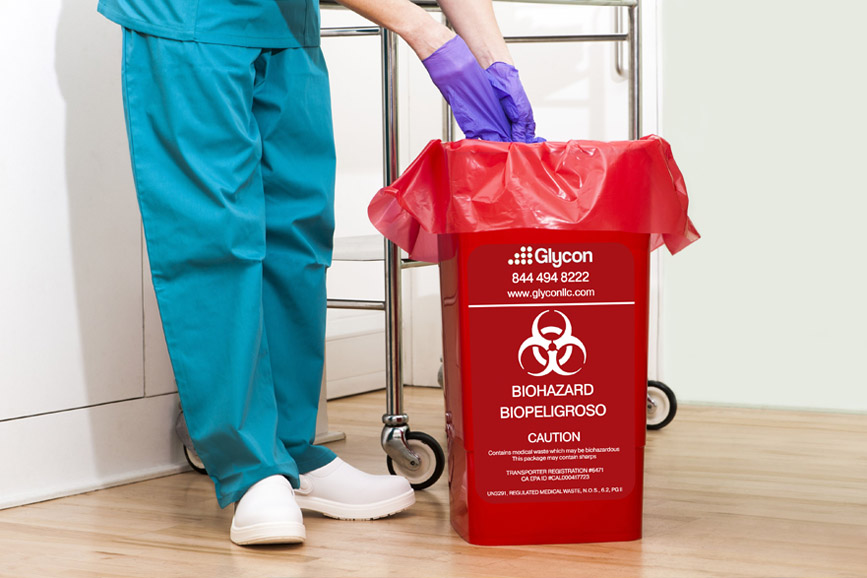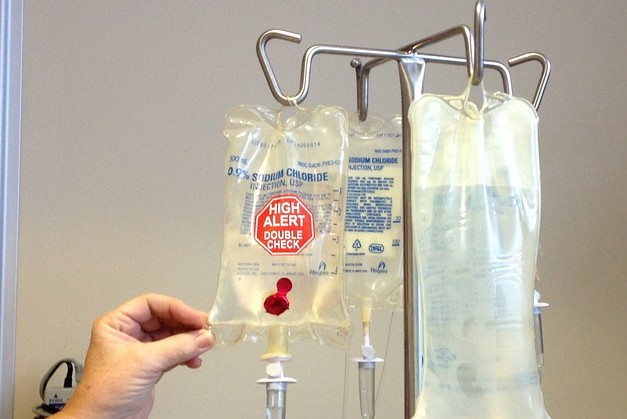Area Treatment: Smooth and Reliable Medical Waste Removal Near Me
Area Treatment: Smooth and Reliable Medical Waste Removal Near Me
Blog Article
Keep Ahead of Rules: Expert Guidance on Medical Garbage Disposal
In a globe where the medical care industry is continuously progressing, it is imperative for medical facilities to stay ahead of guidelines when it involves the correct disposal of clinical waste. With stringent guidelines and constant regulatory modifications, it can be testing to browse the complexities of this process. With skilled recommendations, centers can make sure compliance and mitigate risks associated with improper waste disposal. From recognizing the various classifications of clinical waste to carrying out the ideal collection and segregation methods, this conversation will certainly give beneficial insights and actionable tips to help centers stay ahead of laws in the ever-changing landscape of clinical waste disposal.
Comprehending Clinical Waste Categories
Understanding clinical waste categories is crucial for appropriate disposal and management in health care centers. Medical waste describes any kind of waste produced by medical care activities that might pose a danger to public wellness or the setting. It is crucial to classify clinical waste properly to ensure its risk-free handling, therapy, disposal, and transport.
There are numerous categories of medical waste that health care centers need to be aware of. The most typical groups consist of contagious waste, pathological waste, sharps waste, pharmaceutical waste, and chemical waste. Each category has certain standards and laws for its proper monitoring and disposal.
Pathological waste refers to human cells, organs, or body parts that require special handling and disposal. Drug waste consists of ended, extra, or polluted drugs that need mindful handling and disposal.
Remaining Up-To-Date With Regulatory Changes
Staying current with governing adjustments is important for healthcare facilities to guarantee compliance and correct management of clinical garbage disposal. medical waste removal near me. With guidelines regularly developing, it is essential for medical care centers to remain updated to avoid fines, fines, and potential harm to the setting and public health and wellness
To stay in advance of regulative adjustments, medical care facilities need to develop a system for tracking and tracking updates. This can be done by registering for regulative e-newsletters, going to workshops and conferences, and proactively taking part in market associations. Furthermore, centers ought to mark a team member or team accountable for staying educated and disseminating details to relevant stakeholders.
Routine interaction with regulative firms is also crucial. Healthcare facilities need to establish partnerships with local, state, and federal firms to ensure they understand any adjustments in policies that may influence their waste management practices. This can be done via regular meetings, engagement in public remark periods, and positive involvement with regulatory companies.
Furthermore, health care facilities must think about partnering with waste monitoring firms that focus on clinical waste disposal (medical waste disposal services with WasteX). These firms are frequently skilled in the most up to date laws and can provide guidance and support to make sure compliance
Carrying Out Appropriate Collection and Partition Techniques
To successfully handle clinical garbage disposal, medical care centers should develop appropriate collection and segregation techniques based on regulative standards. Implementing these approaches makes certain the secure handling and disposal of possibly harmful materials, protects the environment, and decreases the threat of injuries and infections to health care workers and the general public.
Proper collection and partition approaches include making use of designated containers and identifying systems. Health care facilities should provide plainly identified containers for different types of medical waste, such as sharps, infectious waste, pharmaceutical waste, and non-hazardous waste. These containers need to be color-coded and plainly marked to stay clear of complication and advertise simple identification.
In addition, health care facilities need to train their staff on the proper treatments for collecting and setting apart medical waste. This includes educating them on the various types of waste, the appropriate containers to make use of, and the importance of adhering to standards and guidelines. Routine training sessions and refresher course programs ought to be performed to make certain that team member stay current on ideal methods.
Furthermore, health care facilities must develop a system for regular collection and disposal of medical waste. This might involve partnering with accredited waste management business that concentrate on clinical waste disposal. These companies will make certain that the collected waste is moved and gotten rid of in conformity with regulatory requirements.
Choosing the Right Disposal Techniques

Incineration is just one of the most efficient and typical methods for disposing of certain kinds of medical waste, such as pathological waste and sharps. It includes the regulated burning of waste at high temperatures, reducing it to ash. Incineration can launch dangerous contaminants into the air and add to air contamination.

Various other disposal methods include chemical therapy, microwave treatment, and landfilling. Chemical treatment entails making use of chemicals to neutralize the waste and sanitize. Microwave treatment uses microwave power to heat and sanitize the waste. Landfilling involves burying the waste in a marked landfill location (medical waste disposal services with WasteX). Nonetheless, landfilling should be the last option because of the prospective risk of contamination to soil and groundwater.
Making Sure Conformity With Paperwork and Training
After very carefully thinking about the appropriate disposal Go Here methods for medical waste, medical care centers need to make sure compliance with policies and lessen ecological effect by executing effective documentation and training treatments. This action is critical in keeping a secure and sustainable setting for both health care workers and the public.

Training is similarly important in guaranteeing conformity with laws. Healthcare workers who manage medical waste ought to get proper training on waste partition, handling, and disposal procedures. This training ought to cover topics such as the appropriate use helpful site individual safety tools, recognition of various sorts of waste, and the correct disposal techniques for every waste classification. By supplying thorough training, medical care centers can encourage their team to make enlightened choices and decrease the threat of inappropriate garbage disposal.
Verdict
Finally, staying in advance of guidelines in medical waste disposal is crucial for health care centers. medical waste removal near me. Understanding the different categories of clinical waste, staying updated with governing modifications, applying correct collection and partition methods, picking the proper disposal techniques, and ensuring conformity with documentation and training are all essential actions. By complying with these standards, health care organizations can properly handle and dispose of clinical waste in a accountable and safe way
From understanding the various categories of clinical waste to implementing the appropriate collection and segregation approaches, this conversation will supply actionable pointers and important understandings to help centers remain ahead of laws in the ever-changing landscape of medical waste disposal. - medical waste disposal services with WasteX
The most typical groups consist of transmittable waste, pathological waste, sharps waste, pharmaceutical waste, and chemical waste. Healthcare facilities should offer plainly identified containers for various kinds of clinical waste, such as sharps, transmittable waste, pharmaceutical waste, and non-hazardous waste. Medical care centers need to establish a detailed system to tape and track all elements of clinical waste disposal, including types of waste generated, quantities, and disposal approaches used. Healthcare workers that take care of clinical waste must get proper training on waste partition, handling, and disposal procedures.
Report this page